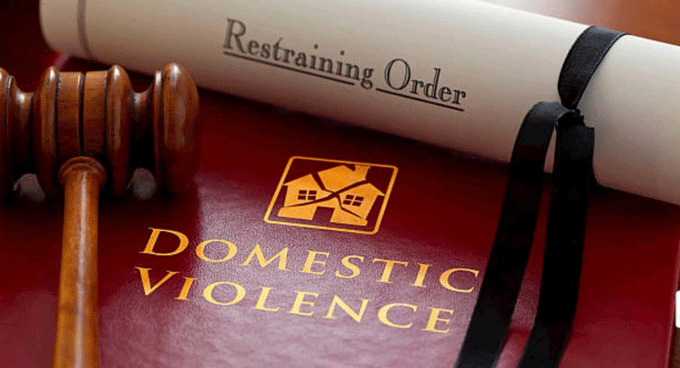
By Rinse Nyamuda
GENERALLY, the mere possession of a protection order against an abuser and the relief granted to an abused by a court is partly a relief in itself. However, it is not the end game. It also does not guarantee that an abuser will comply with the terms and conditions of a protection order or stop them from perpetrating abusive acts.
In order for an abused to have total satisfaction or peace of mind, further action is still required to ensure that the protection order is an effective tool in putting an end to abusive behaviours.
This is done through enforcement. Without any enforcement a protection order is an ineffective useless piece of paper granted by a court.
This article will briefly discuss how an abused person or representative of an abused can enforce a protection order effectively and to its finality.
The effectiveness of a protection order lies in its enforcement. Where partial compliance or non-compliance with its terms and conditions is noted by the abused or an abused’s representative, the next step will be to enforce the protection order.
Under section 14 of the Domestic Violence Act, the first step and only way to enforce a protection order is to make a report to the police.
This police report will contain allegations to the effect that the abuser has within the five-year period from the date of issue of the protection order breached a term or condition of a protection order.
- Chamisa under fire over US$120K donation
- Mavhunga puts DeMbare into Chibuku quarterfinals
- Pension funds bet on Cabora Bassa oilfields
- Councils defy govt fire tender directive
Keep Reading
The report to the police is made in the form of an affidavit. All the allegations by the victim in relation to this breach of the protection order must be clearly stated in this affidavit by either the victim or a representative.
Once this report is lodged with the police, it empowers a police officer to enforce a warrant of arrest which is issued together with the protection order in arresting the abuser.
Upon receipt of this report and before effecting arrest, the police officer must ascertain the following:
- That the abuser was actually served with the protection order which he or she is breaching. The police officer will easily ascertain this by merely being presented with a copy of the protection order signed by an abuser at the time when it was served upon him or her as proof of service or receipt.
- That there are reasonable grounds for believing that the abuser has committed, is committing or is threatening to commit a breach of the protection order; and
- That it is necessary or desirable to arrest the abuser to protect the victim from serious or substantial harm, discomfort or inconvenience, this could be either physical, emotional or economic as a result of the breach of a protection order.
In order for the above criteria to be applied by police officers in effecting arrests in the enforcement of a protection order, the last two items can be challenging.
They are challenging in the sense that they are subject to the police officer believing that an abuser has committed, is committing or is threatening to commit a breach of the protection order as well deeming it necessary to arrest an abuser. Thus, a police officer will be required to exercise his or her discretion in effecting the arrest of an abuser.
The exercise of this discretion in my view creates a platform for bribery and corruption.
However, this platform can easily be monitored by the existence of the anti-corruption body which may find itself fitting squarely into this process.
Where a victim or representative of an abused person suspects bribery and corruption in influencing the decision of a police officer in not arresting an abuser, a report of suspected bribery and corruption can be made to the anti-corruption body against a police officer.
Nevertheless, the effectiveness of this anti-corruption body is still to be appreciated by the general public.
In effecting arrests objectively under a protection order, a police officer must be satisfied that a breach of the terms and conditions of a protection order has occurred, is occurring or appears to be inevitable. If arrested, an abuser will be taken to court within a reasonable time frame facing charges of contravening the terms and conditions of a protection order.
Finally, unless the abuser complies or makes an application for variation of the terms and conditions of a protection order, the successful enforcement of a protection order results in a court applying sections 10(7) and (8) of the Act.
Under these sections, the abuser is ultimately found guilty of an offence and liable to a fine not in excess of level five or imprisonment for a period not exceeding five years or to both fine and imprisonment. Currently, a level five fine is pegged at $30 000.
Furthermore any abuser who repeatedly and continuously breaches a protection order, whether or not such abuser has been previously prosecuted for such breach, will be found guilty of an offence and liable to imprisonment for a period not in excess of five years.
The fine and imprisonment shall not preclude any criminal charges being laid against him/her.
Accordingly, an abuser will be left with no other options apart from either complying with the terms and conditions of the protection order or paying a fine or face imprisonment or both, whichever way a court may deem appropriate under the circumstances.
These penalties, in my opinion may be sufficient to deter an abuser from committing further abusive behaviours in future.
This enforcement will effectively provide an abused person with the necessary relief sought or bring an end to abusive behaviours by an abuser through the court system.
- Rinse Nyamuda is a Harare-based registered lawyer. He writes here in his personal capacity.












